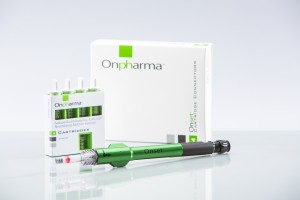Are You a Candidate for Dental Implants?
September 11th, 2018
 4 Things every dental implant patient needs to know when considering treatment.
4 Things every dental implant patient needs to know when considering treatment.
Dental implants are the standard of care for tooth replacement and can provide you with life-altering results! Before embarking on a dental implant surgical procedure, here are the 4 things that every patient should know.
Why did you lose your teeth?
Your practitioner must evaluate why you lost your teeth to accurately assess if you would be a good candidate for dental implants. A dental implant is a human-made root surgically placed into your jaw bone. The bone has to grow around the implant, to secure it into your jaw. This process is called osseous integration. Osseous integration requires a healthy candidate for ideal healing. If you have active periodontal (gum) disease, then you are not an ideal candidate for dental implants until that disease is better controlled. Your dental professional may recommend non-surgical periodontal therapy, surgical procedures or even a combination of both to eliminate active periodontal disease before your implant surgery. After a period of healing and maintenance, you dental professionals determine when you are ready to take the necessary steps toward implant surgery.
Systemic Health
Your dental professionals may ask questions about your medical health, and as well as the medications that you take, patients often wonder why their medical health is related to their dental health. Science has taught us that many medical conditions are directly related to our oral health, this is called the oral-systemic link. Multiple health conditions and medications affect the outcome of dental procedures, especially surgical treatments. It is imperative to provide your dental professionals with a comprehensive medical history and medication list. A good practice is to have a card in your wallet of the list of medications that you take regularly; prescribed and over the counter. Being well informed about your medical and medication history allows your dental professional to provide you with safe, thorough care. Many medications can affect the jaw bone and compromise the long-term success of implant dentistry. Uncontrolled autoimmune diseases and smoking can compromise and restrict the predictability of implant surgical procedures and prolong post-operative healing.
Are 3D Scans a Scam?
The dental implant industry has gone through great evolutionary growth since its inception in the 1950's. The technological growth of digital dentistry has enabled practitioners to yield even more predictable results for patients. Digital planning is a crucial component to long-term successful dental implant outcomes. A 3D scan, also known as Cone Beam Computed Tomography (CBCT), is essential in the planning phase of your dental implant treatment. Using this technology allows your dental implant team to precisely plan both the surgical and restorative phases of your treatment. The placement of your implant fixture and the final restoration, or prosthetic, is planned with digital planning software. Fabricating surgical guides or stents from CBCT is a crucial step in the surgical planning phase; this technology enables your surgeon precise surgical implant fixture placement rather than performing the surgery freehand. Many dental implant failures result from poor surgical placement. Although it may be an additional cost to have a CBCT to plan your implant case, it is a worthy investment.
Post-Treatment Compliance
A critical factor in the success of your dental implant is the maintenance phase. Even though your dental implants are made of titanium and are not susceptible to decay, they are placed in your jaw bone and are surrounded by gingiva, (gum tissue) which is vulnerable to the many different strains of bacteria present in your mouth. It is imperative to follow the prescribed home care recommendations from your dental professional, using specialty brushes for implant dentistry and regular professional preventative maintenance.








